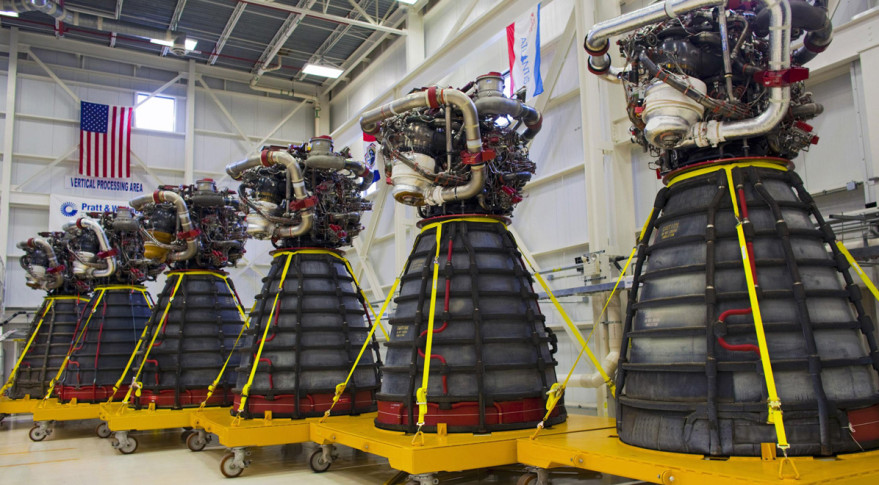Products You May Like
WASHINGTON — Aerojet Rocketdyne doesn’t expect any potential changes to the Artemis program to have much of an effect on its business supplying engines for NASA’s Space Launch System.
Speaking at the J.P. Morgan Industrials Conference March 15, Dan Boehle, chief financial officer of Aerojet Rocketdyne, played down any impacts of possible changes to the Artemis program by the new Biden administration, including delaying a human return to the surface of the moon to later in the decade.
“We don’t see any material impact from the new administration,” he said, citing the bipartisan support for Artemis, as well as from the White House itself last month. “We’re on track and on schedule, and though it’s admittedly early in this process, we don’t see anything at this point that we’re concerned about.”
Aerojet supplies the RS-25 engines used in the core stage of the SLS, as well as the RL10 engine in the rocket’s upper stage. While initial flights of the SLS will use RS-25 engines originally built and flown for the space shuttle, the company won a contract last year to produce 18 new engines for later missions.
That work, he said, would not be affected by any delays to the planned 2024 landing on the moon on the Artemis 3 mission, which now seem inevitable given the shortfall in funding provided for the Human Landing System lander program. “Things may slow to some degree. We might not land on the moon in 2024,” he said. “But we don’t expect it to be a material impact on our program, as these engines are ordered ahead of time and we need to keep our manufacturing facilities open.”
The RS-25 accounts for an increasing share of Aerojet’s revenue, going from 14% to 18% of overall revenues in the last few years. Boehle said that program should stay at that level over the next few years, growing at the same pace as overall company revenues. “The RS-25 is a great program for us,” he said.
The growth in the RS-25 comes while Aerojet is seeing other engine programs wind down, including the AJ-60 strap-on solid booster the company had built for United Launch Alliance’s Atlas 5. ULA has since switched to the GEM-63 motor from Northrop Grumman. “There’s no further headwind from that program,” he said, as the company’s last sales were early last year.
Aerojet is preparing for the end of the RS-68 engine program with the retirement around the middle of the decade of the Delta 4 Heavy. Boehle said Aerojet will ship the last RS-68 engine later this year.
Aerojet will continue to supply the RL10, which will be used on the upper stage of the Vulcan as well as the Atlas 5 and Delta 4. Those sales will somewhat offset the losses from the other engines, he said, “but they won’t replace the RS-68 and AJ-60 sales that we had in the past at their peak.”
Boehle said he didn’t expect any changes in the company’s relationship with ULA after Lockheed Martin completes its acquisition of Aerojet Rocketdyne, announced in December. Aerojet shareholders approved the deal, as expected, March 9, but the sale is still pending regulatory approvals expected in the second half of this year.
“Lockheed has come out already and stated that we will continue as a merchant supplier, and as a result, I don’t expect our working relationship with ULA changing that much,” he said, despite the fact that Lockheed Martin holds a 50% stake in ULA.
Lockheed’s acquisition of Aerojet is opposed by other companies, such as Raytheon, which said last month it would ask the Federal Trade Commission to block the sale. Raytheon argues that the deal would give Lockheed an unfair advantage in missile programs where Aerojet has provided motors.
Boehle reiterated at the conference that, should the acquisition be approved, Aerojet would continue to be a supplier to other companies. “I know that there are some out there claiming that this merger is bad for competition. That’s simply not true,” he argued. “We remain committed to being a merchant supplier across our industry, and continue to play fair and be an effective partner for all defense primes.”
